


Shubham, a special child born into the Chhara Denotified Tribe, harbours a dream of becoming an actor. He finds hope and training in Budhan Theatre, a community-led initiative empowering marginalized voices. Despite enduring extreme poverty, his passion for acting remains undeterred. However, the deep-rooted stigma surrounding his community shuts him out of the education system, leaving him with no choice but to follow in his father’s footsteps as a thief. As he struggles against a destiny shaped by societal prejudice and colonial-era stigma, his story unfolds as a powerful reflection of how dreams are stolen from the oppressed.
Read More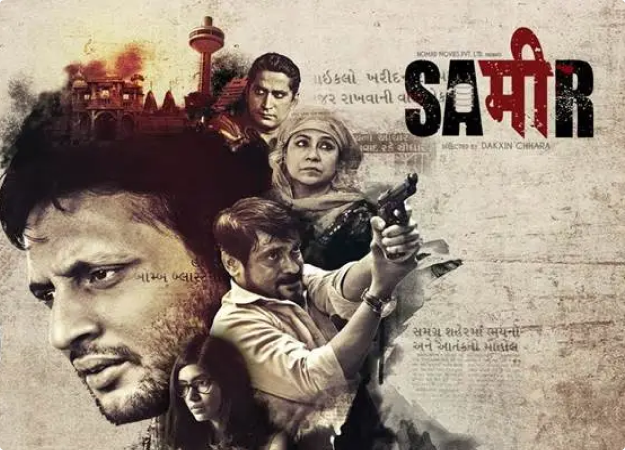
After a series of bomb blasts, a special task force is assembled to find the suspect. They arrest a young engineering student and decide to use him as a mole to stop his terrorist roommate before he can kill more innocent people.
Read More
Shubham, a special child born into the Chhara Denotified Tribe, harbours a dream of becoming an actor. He finds hope and training in Budhan Theatre, a community-led initiative empowering marginalized voices. Despite enduring extreme poverty, his passion for acting remains undeterred. However, the deep-rooted stigma surrounding his community shuts him out of the education system, leaving him with no choice but to follow in his father’s footsteps as a thief. As he struggles against a destiny shaped by societal prejudice and colonial-era stigma, his story unfolds as a powerful reflection of how dreams are stolen from the oppressed.
Read More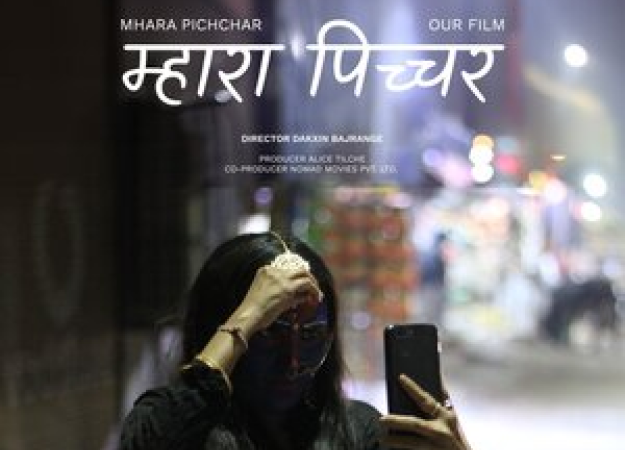
In response to the COVID-19 pandemic, a collective of indigenous artists belonging to India’s ‘ex-criminal’ De-notified Tribes and associated with Budhan Theatre, decided to produce video-podcasts of the impact of the pandemic on the margins. This process was an effort to generate memory against processes of collective amnesia; and to usher indigenous communities to the digital space in a post-pandemic context, where the digital has become an essential component of our cultural and economic life. This film tells the story of the makers, who did not stop recording despite losing members of their own family along the way. Mhara Pichchar combines storytelling with music, poetry performance and narration to bring to the fore issues and debates that are absent in mainstream media. The film traverses several strands covering the personal and artistic trajectories of the protagonists, using behind-the-scenes interviews of the creators and footage from the podcast as the narrative trope.
Read More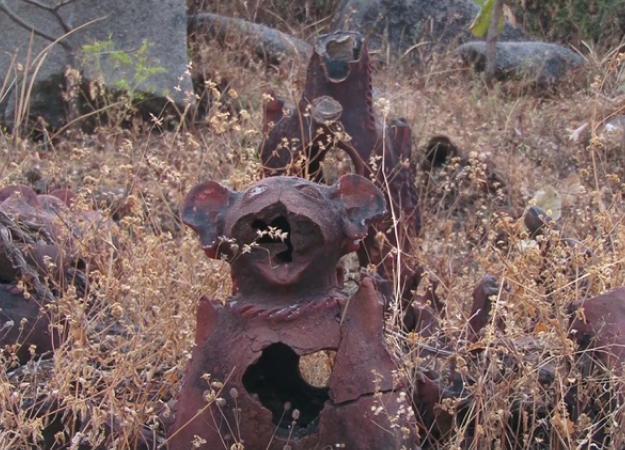
India has one of the largest populations of Indigenous people in the world, known locally as adivasis or tribals. As India's current Hindu nationalist government pushes to redefine India as a homogenous Hindu nation, adivasis’ ways of life are under greater threat. Set among the Rathava and Bhil adivasi communities of western India, broken gods document the social impact of Hindu religious evangelism among India’s Indigenous groups. As Indigenous people join Hindu religious sects, their old gods are literally becoming broken - devotional mural paintings are being whitewashed from homes, and the earthen figurines in honour of village gods and ancestors are being left to fall apart. While for those who convert joining a Hindu sect offers the allure of a better life, those who continue to follow their old ways have become ostracized by their communities. Their broken gods have lost the power to protect them from illness and scarcity.
Read More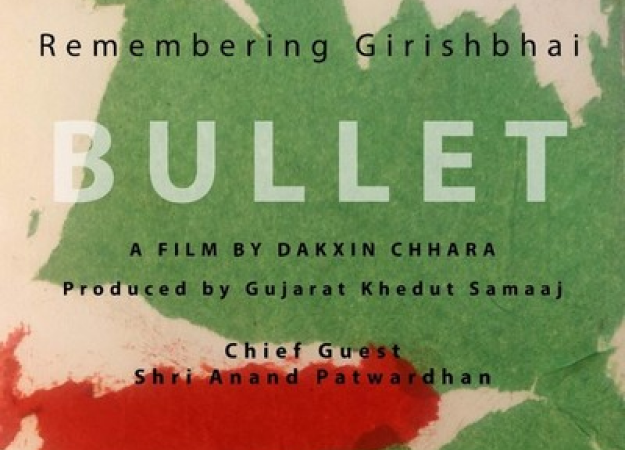
Bullet is a politically exploitative film on the Bullet Train Project that documents farmers' issues being faced by the Ambitionus Bullet Train Project between Ahmedabad to Mumbai
Read More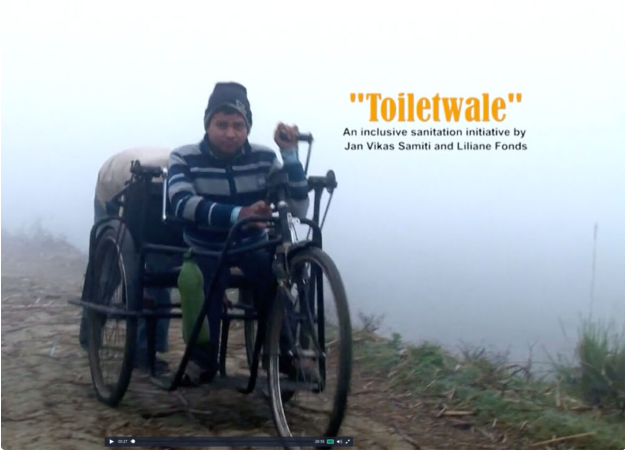
“Toiletwale” is a video documentary of the project Healthful and Hygienic living (HHL) which was implemented in 30 villages of east and west champaran districts of Bihar by two local development organizations from February 2015 – January 2016. HHL was conceptualised with a purpose to promote and sustain disability inclusive sanitation facilities in the villages, to create model (accessible) toilets and to sensitize key stakeholders on sanitation for all. Within one year of its implementation, the initiative succeeds to construct 37 individual household toilets (accessible) through government funding and other local resource mobilization. 20 IHHLs were modified for accessibility. 10 accessible toilets were constructed in government primary school. School teachers observed the increased attendance of girls and students with disabilities in their classes 6 village sanitation monitoring committees (VSMC) were formed that include members as local village leaders, SHG members, DPO members and mothers of children with disabilities. VSMCs in their best capacities are being driven to transform their efforts from community based to community led approach and leave no one without access to appropriate sanitation facilities
Read More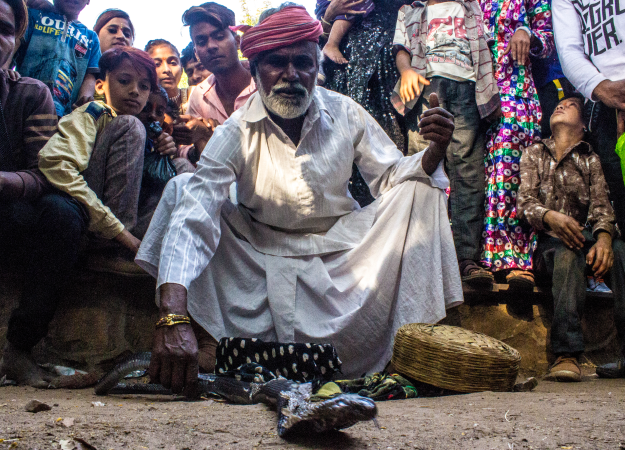
Budhan Theatre members Dakxin Chhara adn Atish Indrekar conducted theatre workshop with the Nat (Traditional acrobats) and Madari (Snake Charmer) to revive their traditional art forms and use it for the community development. The film explores theatre trainings and performances and document the empowerment process within rtists. Produced by Bhasha Research anbd Publicaiton Centre and Funded by The Funds for Global human rights, UK .
Read More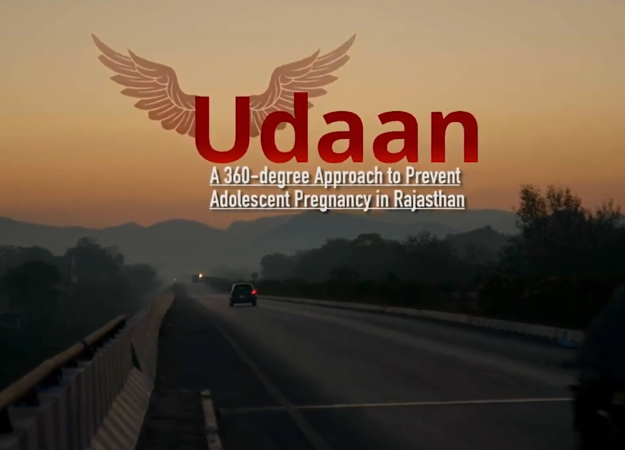
Udaan is a project profile film of IPE Global which works as a nodal agency to provide scholarships to girls to eradicate adolescent pregnancy. Rajastnan Government funds the project.
Read More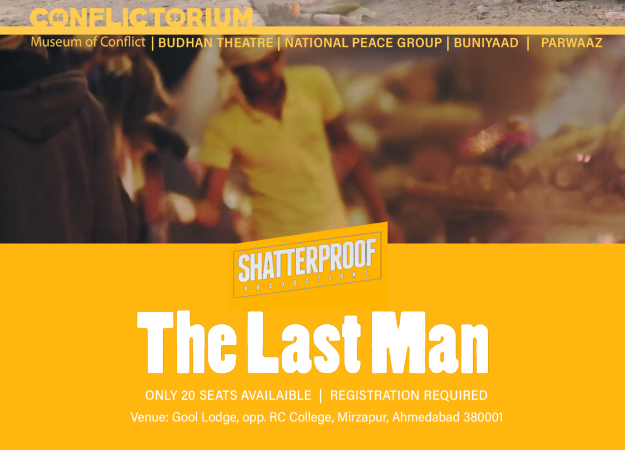
A 56 minute film investigate back-stories of manual scavenger community in India who are doing inhuman work since edges because of caste structure and politics.
Read More
Blame-Game, a Desktop based film focuses on how during epidemic and Pandemics majoritarian politics and majoritarian populations scapegoat to religious minorities and Marginalized communities across the world and play a brutal politics that lead to genocide. This film was made during Covid-19 lockdown in 2020.
Read More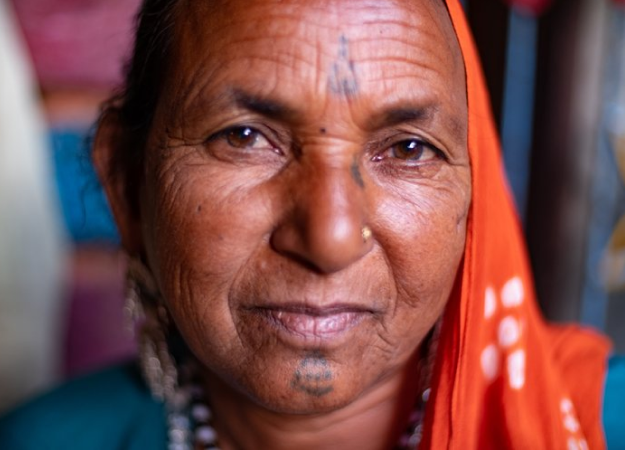
As a "Line Producer" Nomad Movies has produced 10 minute long film on Budhan Video Podcasts These video podcast were made during the Covid-19 to narrate the stories of marginalised communities who were facing the most hardship due to pandemic. The project was funded by the University of Liecester under Arts and Humanties Research Concil, UK.
Read More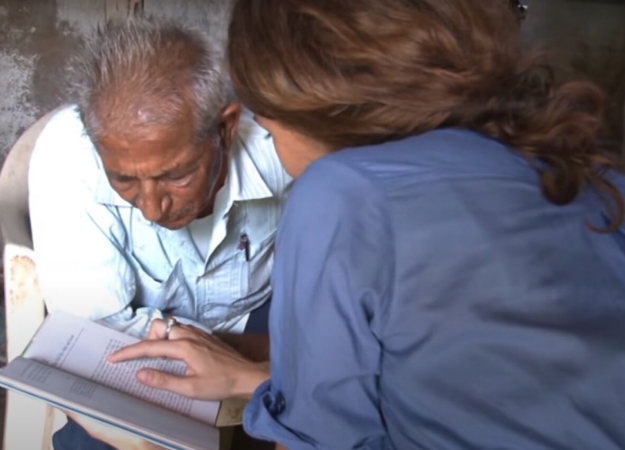
Focussing on a young men’s search for a bride, this film documents the crisis Indian agriculture and the relationship between a village and international migration. The film juxtaposes research conducted in the 1950s and in 2013, among the Patidar community of Sundarana (Gujarat, India). In the 1950s the anthropologist David F. Pocock described the Patidars as an intensely competitive and hierarchical society. Then, land and agricultural know-how were central to the ways in which people thought about each other’s worth and status. In 2013 dynamics of status competition continued to key to social life but agriculture was no longer regarded as a remunerative and dignified occupation. Even wealthy farmers were considered poor. Instead, international migration, ranked nation states and white collar jobs had become new values against which life course decisions were marked. Migrating away from the village had become an economic and social necessity in order to become a recognised social person in the village: to acquire, land, build a house and marry. Many failed. The documentary follows the dramatic story of a young farmer’s quest to marry, and of his discontent. It also tells the story of a community living according to aspirations that they cannot realise. The research for this documentary was undertaken as part of a collaborative project 'Rural Change and Anthropological Knowledge in Post-colonial India’ funded by the Economic and Social Research Council, UK.
Read More
Birth 1871 is the first film that investigate the formal and informal colonial 88histories of Denotified Tribes who are branded as "Born Criminals' due to colonial stigma.
Read More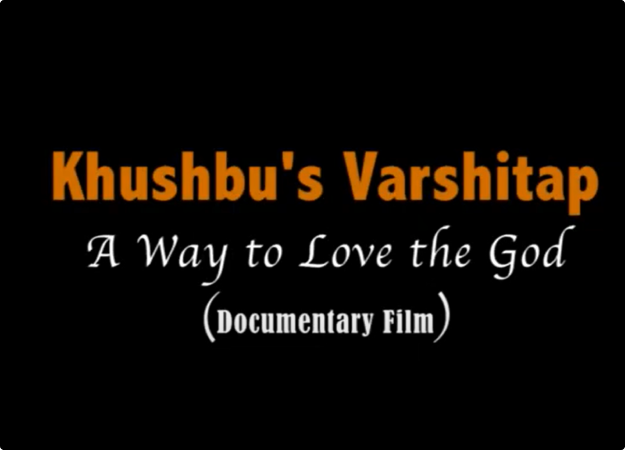
A religious documentary film on the rigorous fasting tradition in Jain religion for continuous one year. The film focuses of fasting done by a young girl called Khushbu.
Read More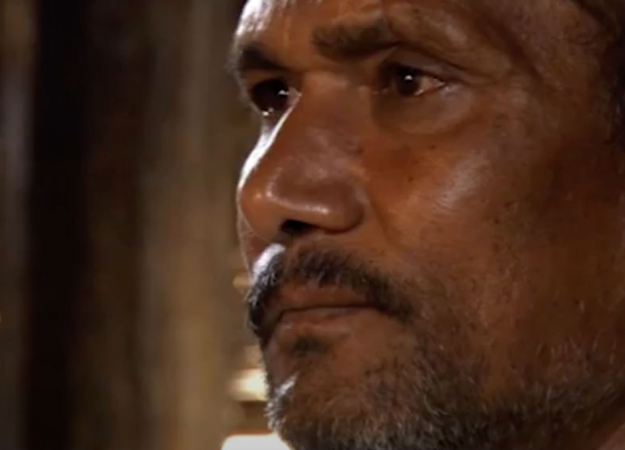
A profile documentary film of an organization called ‘Bhasha Research and Publication Centre ’on its literary work on tribal languages which begun to understand the relation between violence and killing of languages in India
Read More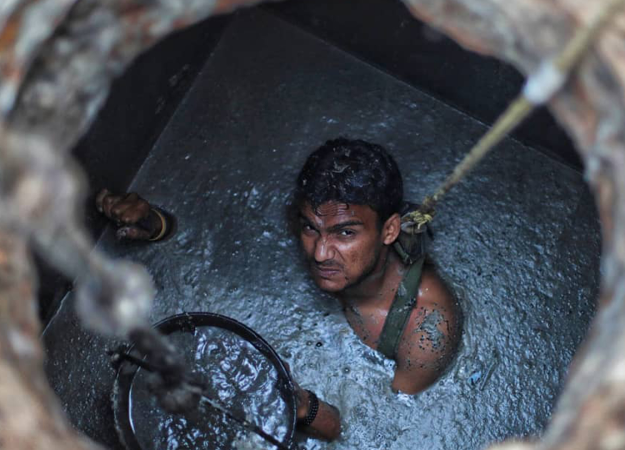
A conference film on the manual scavenger’s social and political rights and various problems they are facing due to inhuman livelihood.
Read More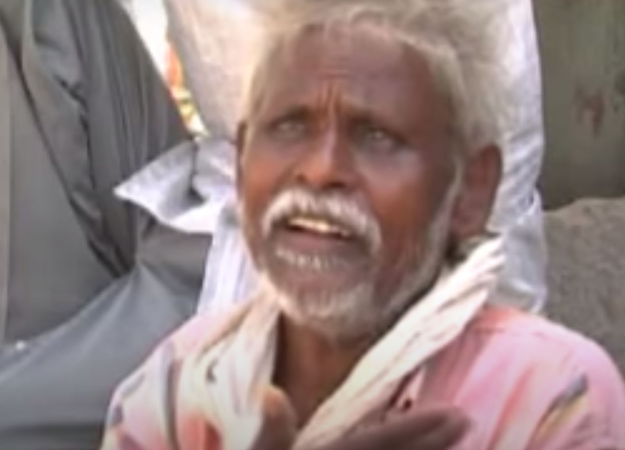
A research-based critical film delves into the multifaceted issues surrounding the displacement and migration of slum dwellers due to the urban beautification projects in Ahmedabad city. This film meticulously examines the socio-economic impacts of these beautification initiatives, highlighting the often overlooked human cost.
Read More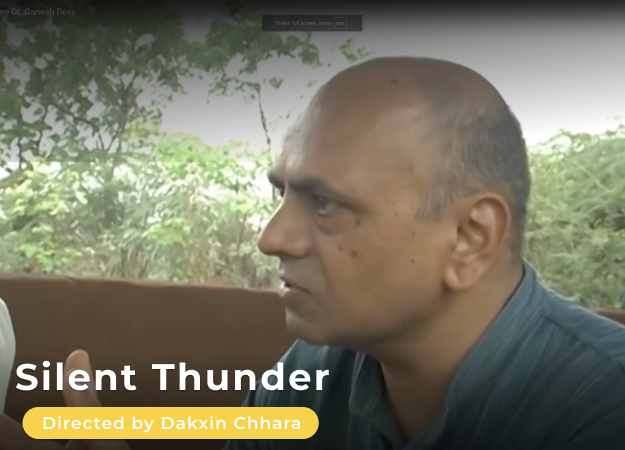
A film on linguist, writer and tribal activist Padmashree Dr. GaneshDevy’s Life and his work. Film portraits his journey into tribal world and De-notified and nomadic tribes and his work on tribal language preservation and documentation.
Read More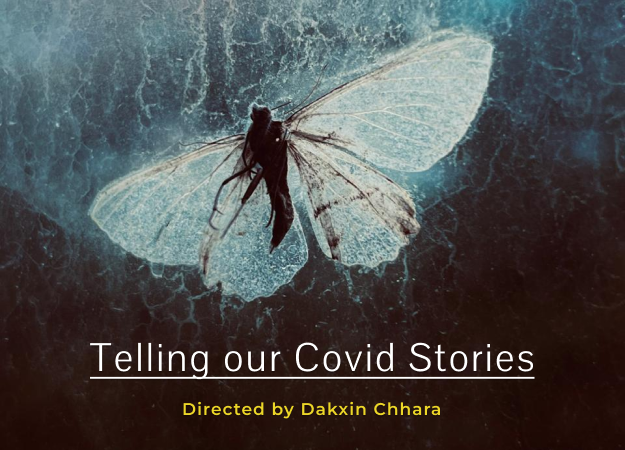
A courageous and talented group of artists from India’s so-called ‘criminal tribes’ stepped out during the COVID-19 pandemic to document the stories of their communities, which have remained invisible from national and international reporting. They produced a series of video-podcasts in indigenous languages spreading information about health and rights, documenting their experiences, and providing entertainment through songs, dance and theatre in a time of crisis. This film will take you through the histories and arts of people living at the perilous margins of Indian society, and explore how they are dealing with the impact of the pandemic.
Read More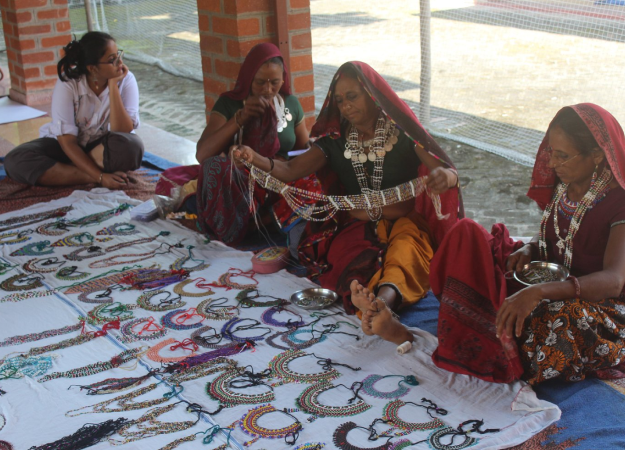
As a "Line Producer" Nomad Movies has produced 20 Budhan Video Podcasts and provided technical expertise and filmmaking training to the Budhan Theatre members. These video podcast were made during the Covid-19 to narrate the stories of marginalised communities who were facing the most hardship due to pandemic. The project was funded by the University of Liecester under Arts and Humanties Research Concil, UK.
Read More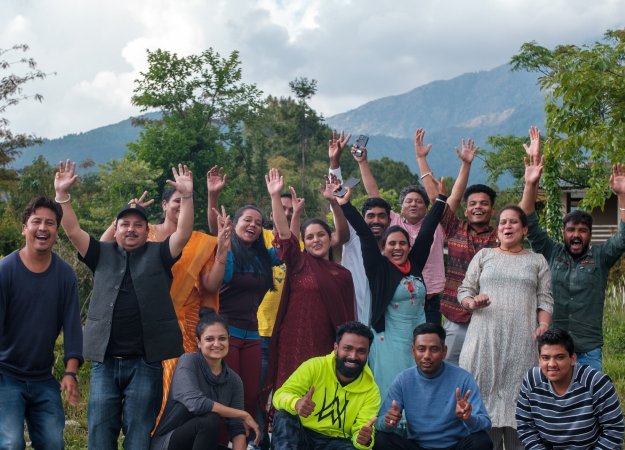
AHRC funded this project allowing us to set up media units in three extreme ecologies of India mountain communities of the Himalayas, Sea communities of Andaman and Nicobar islands and communities living in Rajasthan's desert area. The Budhan Theatre team members are training Denotified and Nomadic Tribe' youth in these extreme ecologies into filmmaking using film medium as a research method and making films on their local issues. At the end of the project, each team will make fiction and non-fiction films and in 2025 these all films will be screened in Nomad Film Festival 2025. For more information about the project please visit the project website www.budhanstories.com
Read More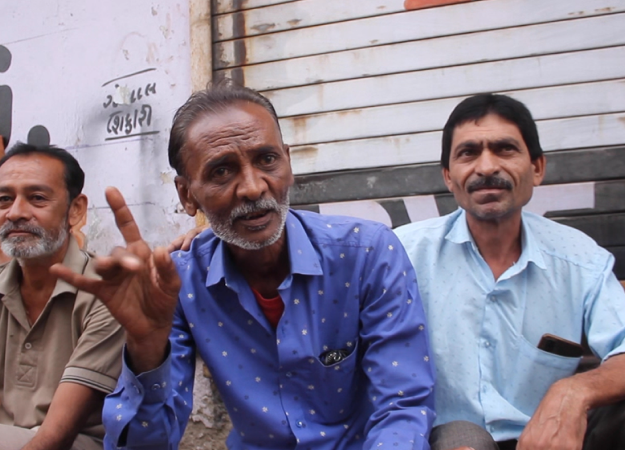
From Nov 2021-22, Nomad Movies provided technical expertise to train youth from the marginalised communties like Dalits, DNTs and Advasis inot filmmaking. This research project was funded by the University of Lecetser
Read More
The Nomad Film Festival 2025 showcases powerful participatory storytelling, amplifying marginalized voices through films made by collectives, first-time filmmakers, and community-led productions. The festival opens with Mhara Pichchar by Dakxin Bajrange, a documentary about indigenous artists from India’s Denotified Tribes using video podcasts to document the impact of COVID-19 on their communities. The festival also presents a curated selection of these video podcasts created by the Budhan Theatre team, which integrate theatre, performance, and music. The festival features a compelling lineup of first-time filmmakers trained in non-fiction participatory storytelling by Budhan Theatre, with films from Himachal Pradesh, Rajasthan, and Andaman and Nicobar, each offering distinct regional perspectives. Expanding on participatory storytelling, the festival presents three community-created films: Kathi, Kathi Kaarana, an anthology produced by workers and their families in Bangalore; Raat, by Third Eye, exploring small-town India’s night-time experiences; and Chanda ke Joote, a short fiction piece on a young girl from a basti navigating life in a ‘big’ school. A panel discussion follows, exploring the impact of participatory filmmaking on communities and the transformative power of the process. Nomad Film Festival is glad to present a film by Rede Katahirine from Brazil - an Indigenous Women's collective, highlighting the universality of this approach. The festival will showcase films documenting experiences of India’s Denotified and Nomadic Tribes (DNTs), including Paandharya, Edpa Kana (Going Home) and Bird Trapper or Beggar.The Nomad Film Festival 2025 concludes with the world premiere of An Actor, created by participants from Ahmedabad under the guidance of Dakxin Bajrange. This final screening encapsulates the festival’s essence—communities documenting their own narratives, empowerment, and transformation.
Read More